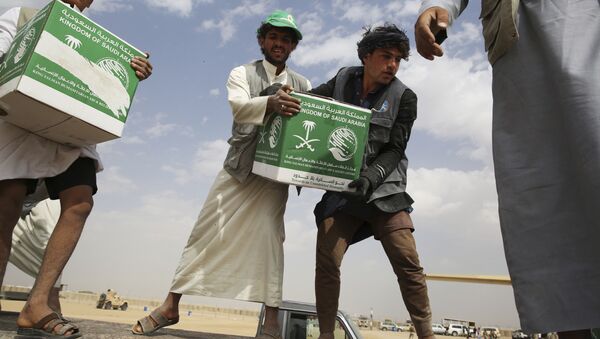The US has not made a final decision on the matter, with a senior US State Department official telling the Washington Post on Sunday that it would be the Houthis’ fault if the aid were interrupted.
“We’re in an unfortunate situation, and we’re trying to work the problem,” the official said. “If such an action were taken, it would be one that was forced by basically unprecedented Houthi obstructionism.”
The Post noted that if such a suspension were implemented, it would take effect on March 1. In fiscal year 2019, the US provided $746 million in aid to the Arabian country, which has been wracked by war since 2015, when a Saudi-led coalition attacked the rising Houthi movement on behalf of deposed Yemeni President Adrabbuh Mansur Hadi.
The announcement follows several others by aid organizations working in Yemen, which last week said they were considering withdrawing some of their personnel because of the growing danger in Houthi-controlled parts of the country.
“The operating environment in north Yemen has deteriorated so dramatically in recent months that humanitarians can no longer manage the risks associated with delivering assistance at the volume we currently are,” a senior UN official told Reuters, noting that unless things improved, they will have “no choice” but to pull some people out.
Mane’a Al Assal, chairman of international cooperation for the Houthis’ aid oversight body, told the Post that such a tax was “natural,” noting the government needs to mitigate overhead costs. He also noted the tax was not yet being collected.
“I don’t see any excuse for reducing the humanitarian aid,” Assal said. “This reduction would greatly affect Yemenis.”
The Zaidi Shiite Houthis, who control much of northern and central Yemen, including the capital of Sana’a and major Red Sea port of Hodeidah, have imposed taxes and fees on a number of activities in recent months. The London-based publication The New Arab reported in December 2019 that taxes had been imposed on doctors conducting surgeries on patients in private hospitals in a bid to force medical staff to provide their services free of charge.
The New Arab also reported on unverified claims that a Sana’a mosque had begun charging worshippers to use the holy house, with a dawn prayer costing 100 Yemeni rials and other prayer times 50 Yemeni rials. The Tarawih prayers after dusk during Ramadan could also set you back by 100 rials, according to pictures of a notice that circulated on social media.
A report late last year by the International Rescue Committee noted that 24 million Yemenis were in need of humanitarian assistance, with 16 million close to famine conditions and at least 160,000 children under the age of five suffering from acute malnutrition. Yemen’s population is only 28.25 million. According to the The Armed Conflict Location & Event Data Project, the war has killed an estimated 102,000 people.
The Houthis and Saudis have been in peace dialogue for some months, following a devastating Houthi drone attack on two Saudi oil facilities in September that temporarily crippled petroleum production. The talks were being brokered by Sultan Qaboos bin Said of Oman, but following the monarch’s untimely death last month, the future of the peace effort remains up in the air.


